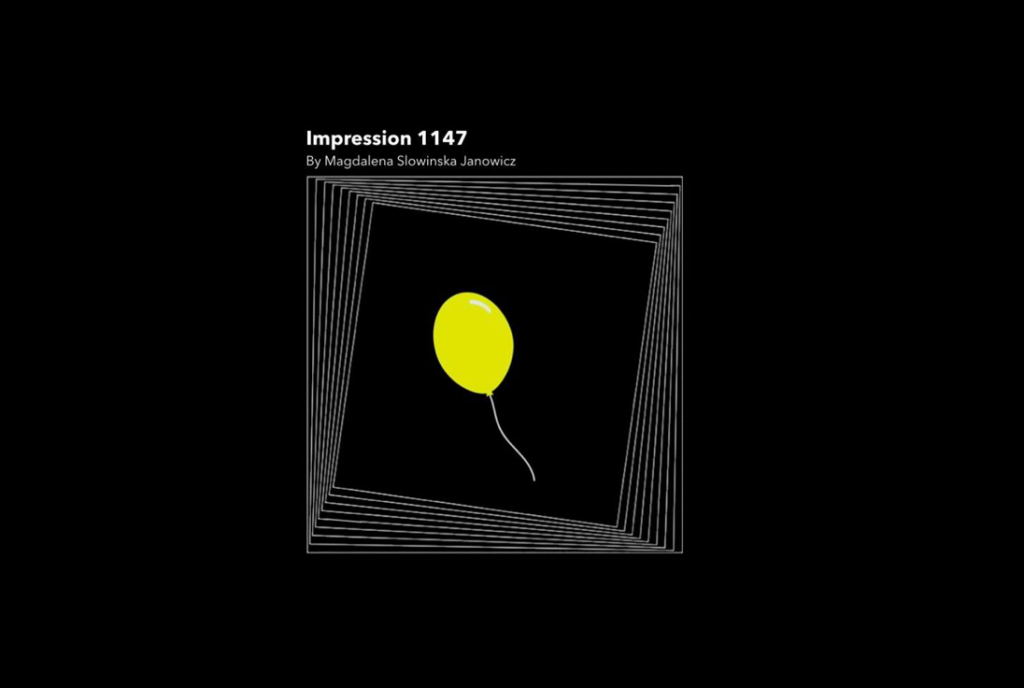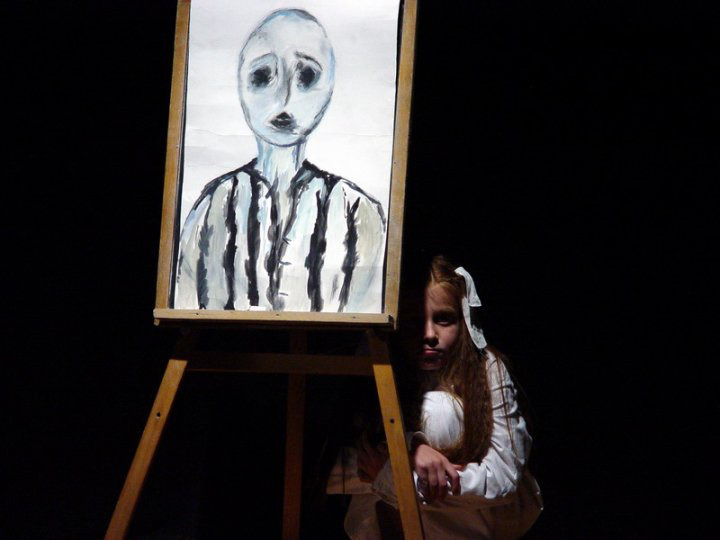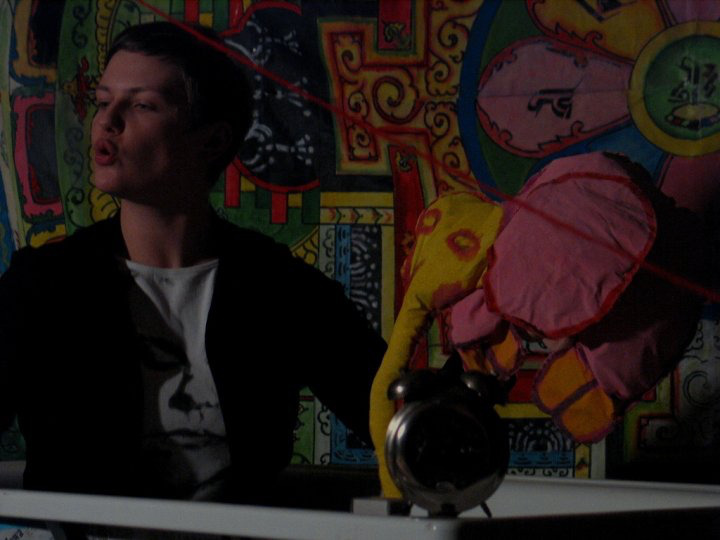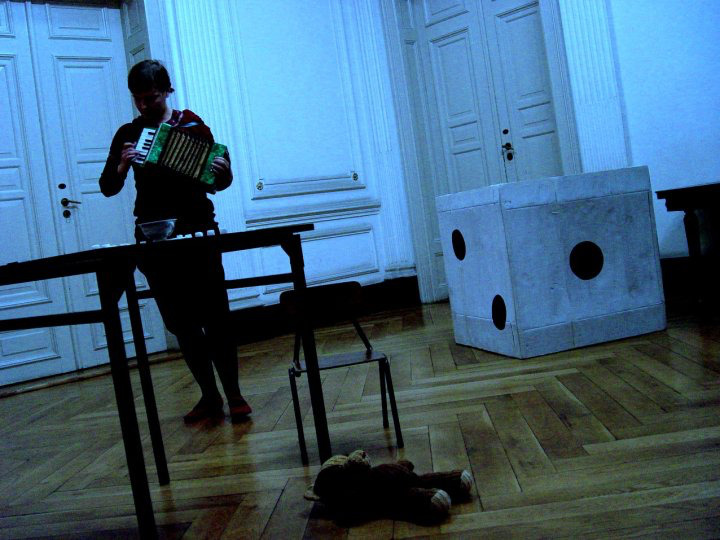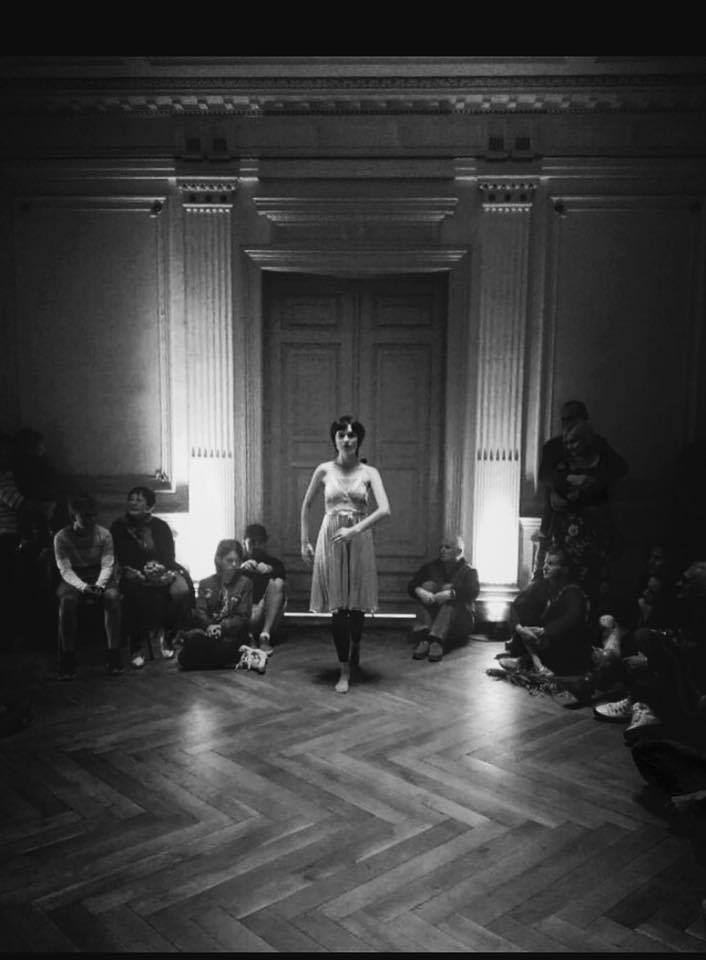Please view some of my Art projects below.
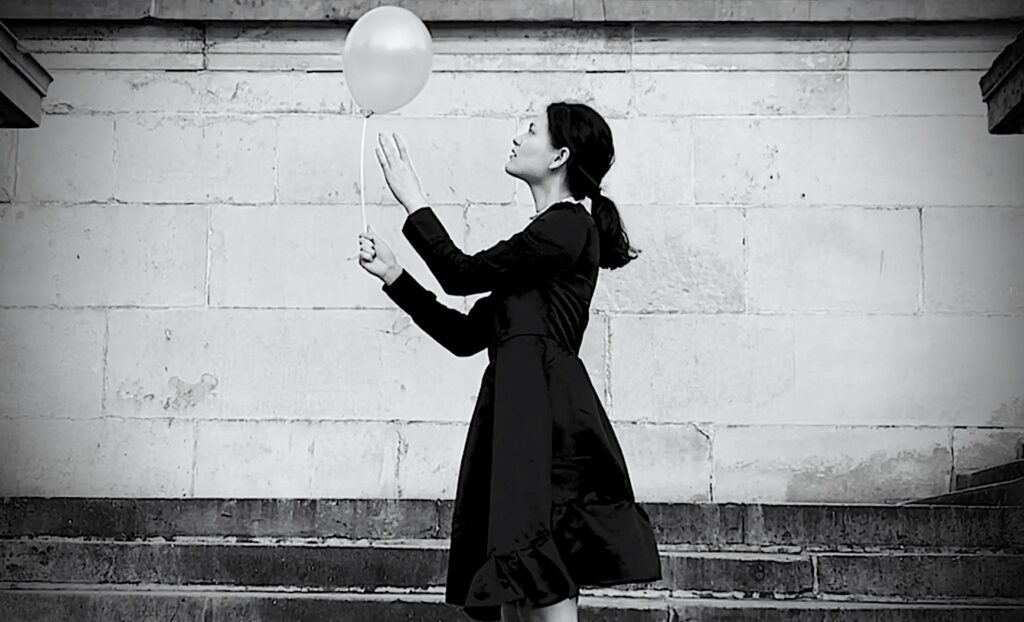
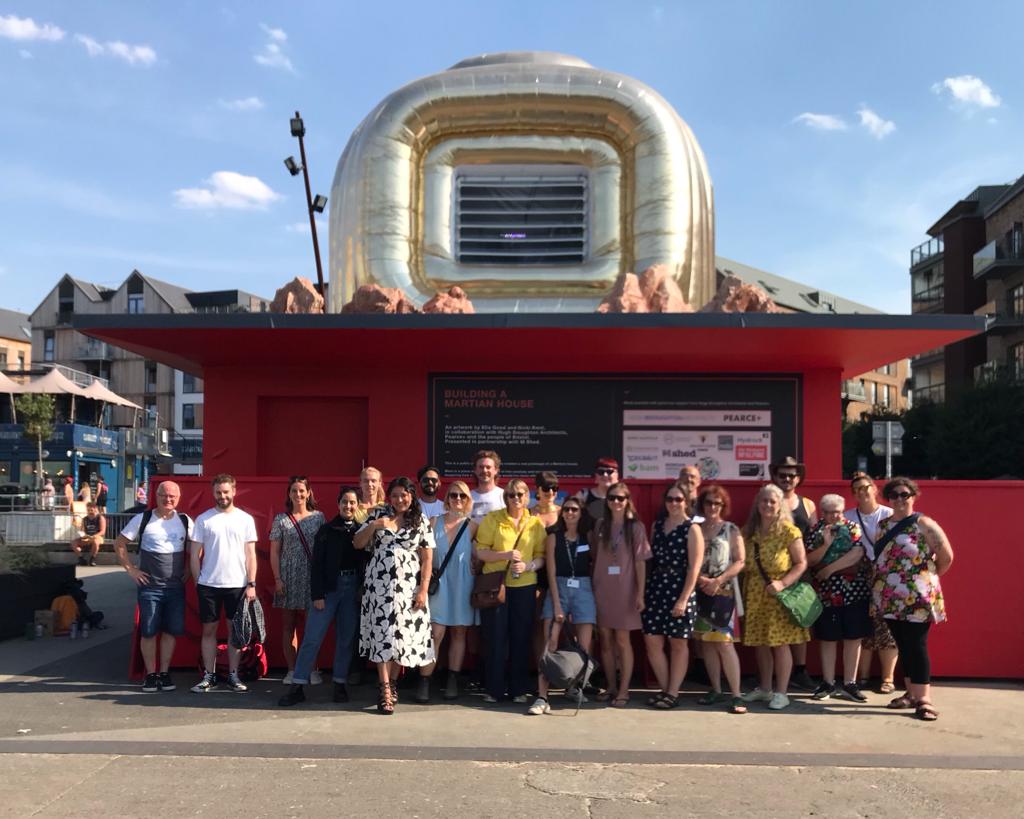
Building a Martian House – Art, Design & Architecture
I was involved in designing and making the interiors for a real, functioning Martian House. The house provided a place for alternative visions of the future – looking at what is possible to build here and now, through people with different skills working together.
The house was built as a blank canvas. I, with the rest of the interiors art team worked to design and make prototype objects to go inside. I helped design a bathroom, bedroom area, leisure area, and a space for meditation on Mars. I worked with reusable and organic materials, including plants and human hair.
About the project
Building a Martian House is a public art project that has made a prototype of a real Martian house. The project has brought together space scientists, architects, engineers, designers, and the public to explore how we live today and stimulate visions for new ways of living here on Earth and on Mars. Mars is a place where you’d have to live carefully and resourcefully. Imagining how a small community would live there offers a sharp lens on our lives here and now on Earth. There’s an upcoming book that will showcase our designs.
Building a Martian House is led by artists Ella Good and Nicki Kent in collaboration with Hugh Broughton Architects and Pearce+.
Find out more about the project on the Building a Martian House website.
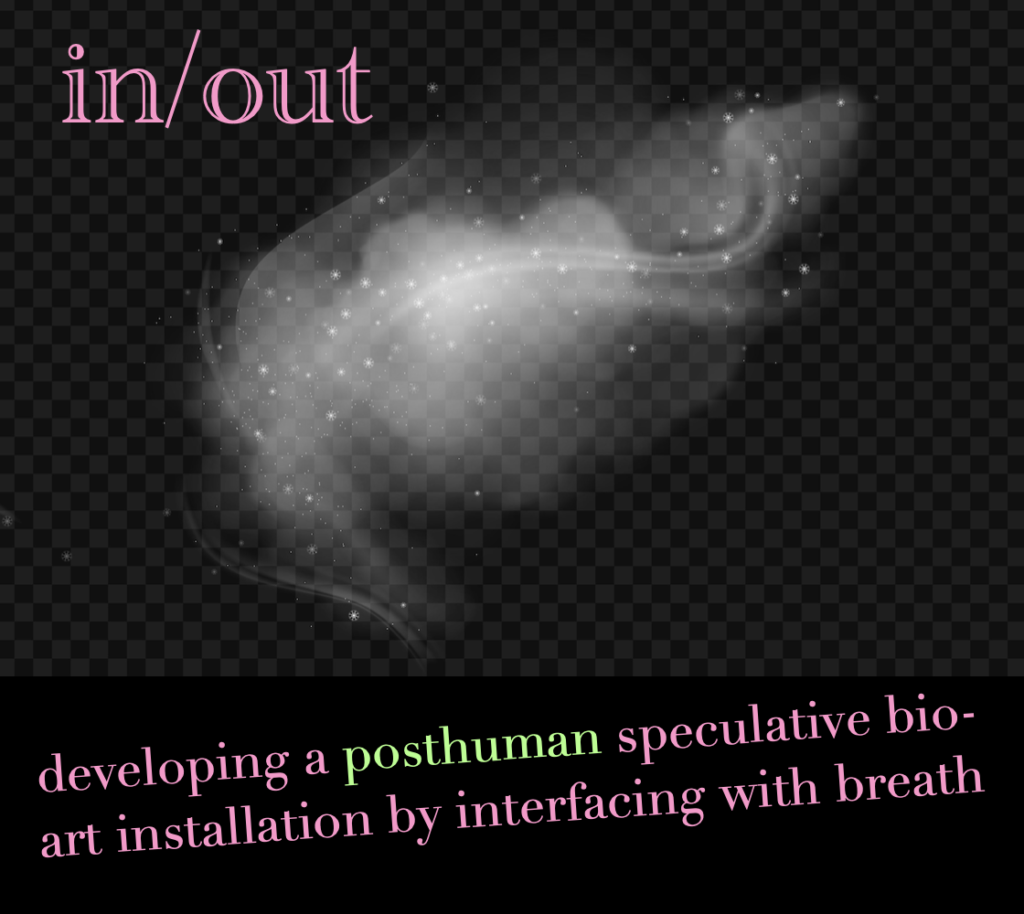
in out – Immersive Bio-Art
Current project I’m working on is an art-science experiment researching and developing a Wearable On-Body Garment-Like Breathing Robot through Sensory Design, Soft Robotics, Immersive Storytelling, and Interfacing with breath. The project is a collaboration formed as a part of a “Biohybrid Bodies: how might we come to live with Living Machines?” research hosted at UCL. The final output will be revealed soon – TBC.
Read more here https://magdalenajanowicz.com/inout-project/
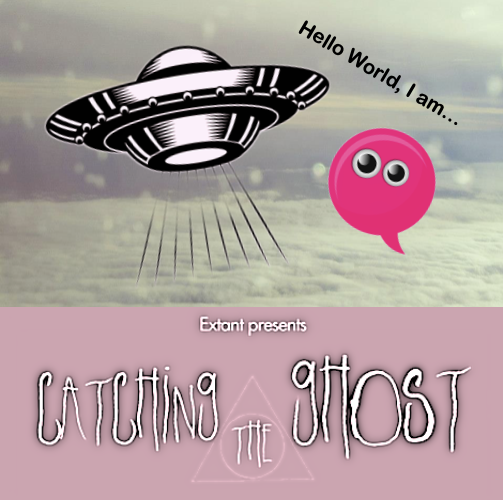
Catching the Ghost – Adaptation
I adapted “Catching the Ghost” by Chris Campion of Extant Theatre for the purpose of my project in Human Computer Interaction at UCL. The original play tells a complex journey of a young man whose gradual loss of sight takes him through an uncompromising experience of depression and split identity.
Please see Extant Theatre’s website for more information about the original play: https://extant.org.uk/project/catching-the-ghost/.
I approached Chris’s play using a science fiction genre to ensure the prop design activity my research participants were invited to work around is abstract and focused on one object, a flying saucer – UFO.
I created two script versions:
- an audio play narrated by a human-like bot voice used in a digital application prototype I designed to make prop design more accessible to blind and partially sighted artists and designers.
- a traditional play script.
Project page: www.tinkerprop.com.
Impression 1147 – Theatre
Impression 1147, a theatrical piece, earned its place as a finalist in UCL’s New Writing Festival, where it was brought to life by the dedicated team of UCL Drama Society. I was involved in various creative facets of the production, including writing, directing, music composition, and the design of costumes, props, and the stage.
This production was performed in January 2020 at London’s Etcetera Theatre.
The play unravels a poetic narrative centred around a young woman who finds herself entangled in an improbable love affair with a stranger from a carnival. Instead of confronting her true self, she superimposes an idyllic, dreamlike image of love upon her partner. The depths of her subconscious mind wield immense influence over her perceptions and experiences of her beloved, leading both characters to grapple with the enigmatic chasm that divides them. Their tangible bond, it seems, is shrouded in the impossible.
Impression 1147 delves into the existential realm of ‘Absurdist Theatre,’ casting a spectral light on an emotional discourse, personal deconstruction, and a poignant exploration of the profound fears, strengths, and desires residing within the human heart.
However, there is another layer to this play’s narrative. In my hometown of Gorzow/Landsberg an Der Warthe, Poland, the Paucksch villa, formerly the GDK palace, is a household name. It was the site of my independent theatre residency and of the initial and subsequent performances of Impression 1147.
To grasp the full context, we must journey back to the 1920s when Frieda and Reinhold Bochnig became the villa’s proprietors, purchasing it from the Paucksch family. Their daughter, Hildegard Bochnig, fell in love with Hans Fritzges, who had brought a carousel to Landsberg, residing in the villa’s garden near the riverbank. This unconventional union led to Hildegard’s estrangement from her family. However, her father eventually accepted her son-in-law, when she was expecting a child and living in Hamburg. This child later grew up in the villa.
Remarkably, in 2006, oblivious to the Bochnig family’s history, I conceived a theatrical etude titled “Impression 1147.” In this performance, I portrayed a young woman in love with the boy from the carousel. The outcome was a poetic narrative weaving together a tapestry of interconnected characters through shared impressions, thoughts, visions, words, and actions.
Thus, a story nearly a century old is resurrected within the framework of this theatrical production. And here, a contemporary narrative unfolds. My chance encounter with Michaela Fritzges (Hildegard’s child was Michaela Fritzges’s father) in Spain in 2017 set in motion a series of events that ultimately led to the great-granddaughter of the villa’s former owners participating in the immersive final performance held within the very house before it was sold to a private investor. The farewell to the villa proved to be an emotionally charged day, not only for us but also for the citizens of Gorzow.
Film version: currently working on a feature movie script.
2006 production:
Magdalena Janowicz – direction, writing, dramaturgy, music, lead girl part
Grzegorz Witkowski – Impression 1147
Bartosz Poplawski – Boy
2018 production:
Magdalena Janowicz – co-direction, writing, dramaturgy
Julia Adamczyk – co-direction
Kasia Kaluska – Hildegard Bochnig
Mariusz Lewandowski – Reinhold Bochnig
2020 production:
Magdalena Janowicz – direction, writing, dramaturgy, music, set and costumes, lights
Sadhbha Odufuwa-Bolger – Assistant Director
Jane Wong – Producer
Jade Armstrong – Girl
Rob Davidson – Boy
Veronika Stadnik – Impression 1147
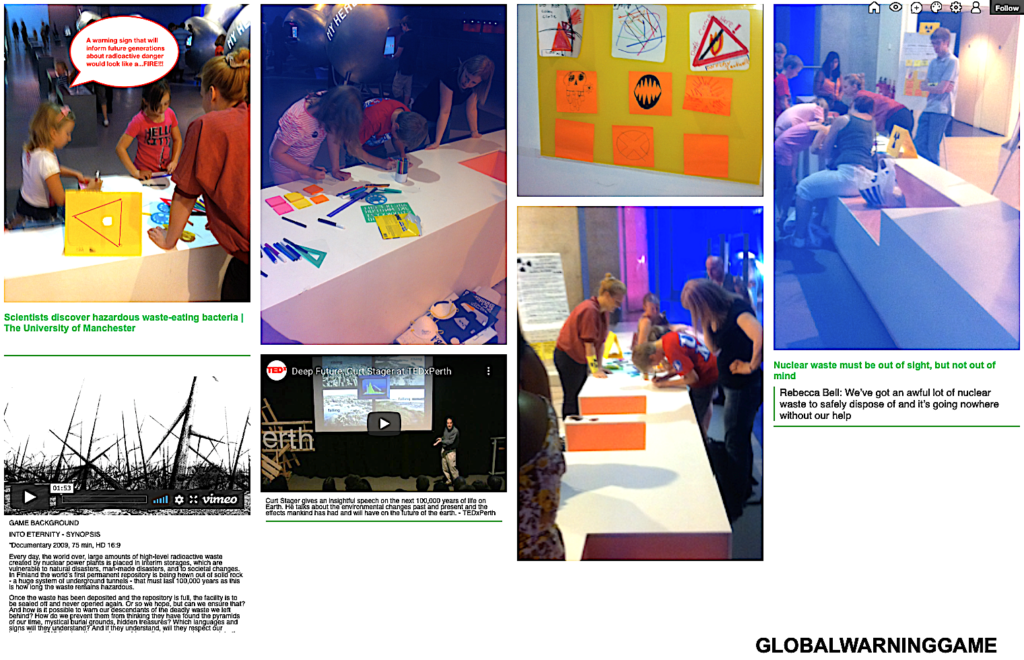
Global Warning – Pervasive Game
SYNOPSIS
People use radioactive materials to produce electricity and nuclear weapons. There is 250000 to 300000 tons of nuclear garbage in the world now. The newest technology allows people to bury radioactive waste underground. But did you know that highly radioactive waste will remain hazardous for thousands of years or more?
Specialists say that current nuclear warning signs are not very effective and these signs/messages and warning symbols will have to inform future generations about radioactive danger… The Global Warning game was designed by myself and I playtested it at the Science Museum in London as a part of the Games Jam and Player Festival in 2011. Players have a chance to explore this pervasive game and solve an anthropological puzzle that challenges them to design a perfect warning sign that will signal danger in the nuclear storage zones in 100, 10,000 and 100,000 years time. Players immersed in the game world use a leaderboard with creative designs and together with other players give votes from the future to the best warning signs. Signs with 5 votes and above are then displayed as an exclusive exhibition and a collective design work that can help scientists and designers create better warning systems to warn future generations and protect them from radioactive danger. The Global Warning Game is currently run as a not-for-profit offline game. Its further development and digital version is planned.
Project page: https://theglobalwarninggame.tumblr.com
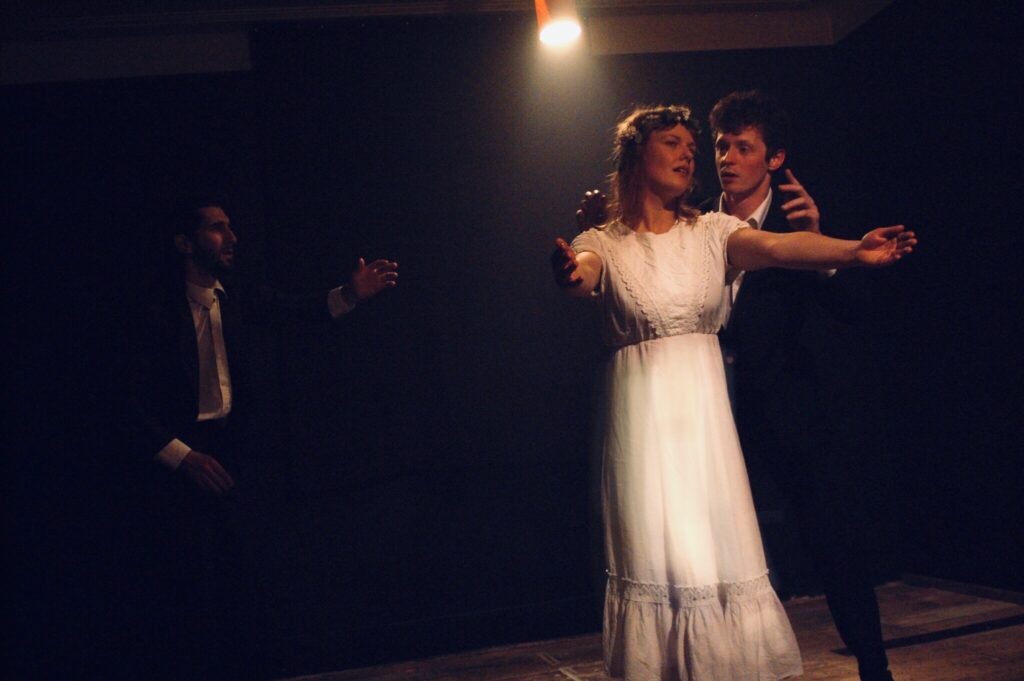
The Bones – Physical Theatre
The Bones Theatre was an avant-garde theatre established in London. The theatre’s work was reflected in the original choice of literary texts: Mickiewicz, Kafka, Witkacy, Eliot, Milosz, Shakespeare, Gombrowicz, Rimbaud, Chekhov. Such selection allowed the group to place Polish literary sources within the context of Anglo-Saxon and European culture.
I was a part of the London-based core team during 2006-2007 – received full physical theatre training from Krystian Godlewski and Kamil Adamus – Stanislavski and Grotowski method, with focus on self-knowledge, awareness, body work, expression, and synchronization of body and voice.
The Forefathers’ Eve:
“This Polish national romantic drama –Forefathers’ Eve in the English translation – is actually a trilogy of stage plays. It’s a cornerstone of Polish romantic mythology and, according to those less fond of Mickiewicz’s message, our historical and individual delusions. In plain and simple words, the poet addressed the historical trauma of Poland’s loss of independence, its oppression and resistance, comparing it to the sacrifice of Jesus, therefore giving a metaphysical, religious meaning to the perils of Polish history. Even now, many people would swear that those plays touch the core, irrational essence of the nation’s psyche – and its destiny.
…) You know,
Our nation’s like
a living volcano:
The top is hard and cold, worthless and
dried,
But boiling, fiery lava seethes inside.
Translated by Charles Kraszewski
The common motif of all three plays is contact between humans and ancestor spirits, sometimes turned into suffering wights. The very word dziady is strange; it’s a folk, informal word, it means offering to the ancestors, but it also means ‘beggars’ and the adjective dziadowski means poor and shabby. The summoned ancestors’ souls do resemble beggars, because they are hungry and they beg for attention and food.Part I was never finished and the fragmented scenes were published only after author’s death. Part II, written in 1823, is about a ceremonial summoning of the souls in purgatory. The wandering souls are fed with honey, various grains and vodka. The ritual is semi-Christian on the surface, but in fact, it comes from a much older, pagan heritage.”
By Wojciech Zembaty in Culture.pl https://culture.pl/en/work/forefathers-eve-adam-mickiewicz
Cast:
Magdalena Janowicz performing as Zosia – a ghost maiden (image – in the middle).
Kamil Adamus (image – on the right – Gravedigger 1)
Krystian Godlewski (image – on the left – Gravedigger 2)
Photo – our work was focused on body and voice – folk techniques using “white voice” – staging of the Forefathers’ Eve (Polish: Dziady) by Adam Mickiewicz (London, UK, 2007)
#Forefathers’ Eve
On The Wall Theatre
Between 2003-2007, I was a founding manager and creative director of Namurku Theatre (On The Wall Theatre) – an independent theatre company established in Landsberg (Gorzow Wielkopolski) in Poland.
Group members:
Magdalena Janowicz – founder, director, writer, manager, performer, theatre maker
Ela Kuczynska – award-winning artist, theatre maker, musician, teacher, human and animal rights activist
Bartosz Poplawski – actor
Ola Kos – child actor
Sylwia Wilk – actor, singer
Grzegorz Witkowski – actor, theatre technician
The theatre contributed to many fringe productions and educational projects for children and young people. The main idea was to discover and hire theatre actors and volunteers spontaneously while meeting each other, talking and dreaming…Coming from all walks of life, amazing humans of all ages were invited to produce and perform every aspect of the show.
My original performance “Pasek” (Strap) was awarded by jury prize during the VI Festival of Polish Independent Theatres in Ostrow Wielkopolski.
Theatre page: https://namurkutheatre.tumblr.com
